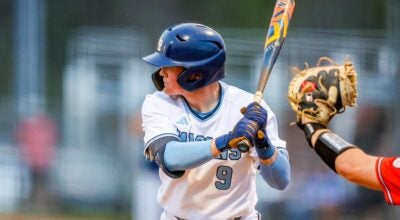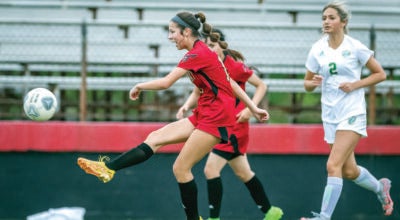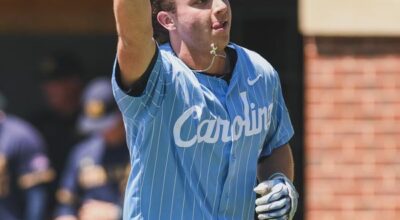Horning makes national team
Published 12:00 am Saturday, August 9, 2008
By Nick Bowton
nbowton@salisburypost.com
Katelyn Horning broke her collarbone and upper arm skating two years ago. Last year she dislocated her kneecap.
As Horning puts it, she hasn’t “had the best luck in the last couple years.”
Until now, of course.
While some of her peers are here in Rowan County, going through two-a-day practices to prepare for fall sports seasons, Horning is doing two-a-days of her own. But she’s doing so on a much larger scale.
One of the best inline speed skaters in the nation, Horning left Salisbury for Colorado Springs, Colo., last Friday to train for the 2008 World Roller Speed Skating Championships in Gijon, Spain. Along with the other 23 members of the U.S. world team, she’ll be in Colorado for another two weeks, training six-to-eight hours a day before leaving for Spain on Aug. 26.
“Outdoor is where the world level is,” said Horning, a 17-year-old rising senior at Salisbury High who’s been skating indoors since she was 10 and outdoors the last three years. “I’ve had a few spills and falls and broken bones ó it all comes with the outdoor. It’s a lot more aggressive and intense.
“It really puts it into context. It makes you want to push through it. It makes you realize how dedicated you are to what you do.”
–
For Horning, dedication means training on her own because Salisbury doesn’t have an inline skating club.
Horning competes part-time with Synergy Inline Racing, a club based out of Harrisonburg, Va., but she only joins the club for meets. As for training? Horning does that here in Salisbury with her father/coach, Dennis.
Dennis Horning played football and ran track at Kent State and also has worked as a personal trainer. He keeps in contact with his daughter’s club coach, Kelly Springer, to help put together proper training routines.
“Just like anything, you’re there enough, you watch, you learn it,” Dennis Horning said. “I would always sit back and help coach but also never step on anybody’s toes, watch what they do and how they do it. Since me and her started working together on this outdoor stuff, we go behind the Y, practice around our development.
“We have a one-mile track that we do. I pace her with my truck ó I can’t ride a bike that fast. We train with a parachute, weight vests.”
–
On top of all of that, Horning runs cross country and track at Salisbury High. She played soccer her first two years and plans on being a cheerleader this year as well. Her father considers the other sports “cross training” and said mixing in track and cross country can help keep Horning from getting burned out on skating.
Whatever Horning’s done thus far has worked.
Two years ago, Horning participated in her first outdoor nationals and first tryout for the world team. That go-around ended with the broken collarbone and arm. Last year she made the world team as an alternate despite a dislocated kneecap.
Now she’s on the senior world team, which consists of six boys and six girls 17 and older ó the junior team is for ages 13-16.
The youngest member of the senior team, Horning made the team based on her performance at the outdoor national championships in Colorado in June. Now she’s back in Colorado with her teammates to determine who skates in what races in Spain. Horning said her forte is middle-distance races.
“They said they’re gonna try to go a little lighter this year and do more technical stuff,” Horning said of the three-week training program. “But it will be harder than most people do on a regular basis. We’ll have two-to-three sessions a day.
“So basically you skate, eat and sleep.”
–
After two more weeks of that routine, Horning will take part in her first world championships.
Each race will include two U.S. skaters, a “designated winner” and a “designated helper.” While Horning knows she’s likely to be a helper as the youngest skater on the team, she said she’s anxious just to participate at the highest level possible.
Horning will be in Spain through Sept. 12 and then return for her senior year of high school. She hopes to continue skating through college, although a career as an inline speed skater isn’t a lucrative path at this point.
Horning said the sport is huge in both South America and Europe, but she admits that some of her peers here in the United States don’t know exactly what inline speed skating is.
“Once I give them a 10-minute description of what it is, sometimes they still don’t get it,” Horning said. “Most people around school know what it is and what I do. My close friends for sure know exactly what it is. They’re real proud of me. It’s kind of hard at first explaining to people who haven’t done it before.
“They’re thinking it’s like roller blading. Or roller derby.”
The sport is much more grueling than a stroll through the park on a pair of generic roller blades, with many inline speed skaters transitioning to speed skating on ice.
Horning said such a transition could be a part of her future. For now, though, she’ll settle for being one of the best inline speed skaters in the nation.





